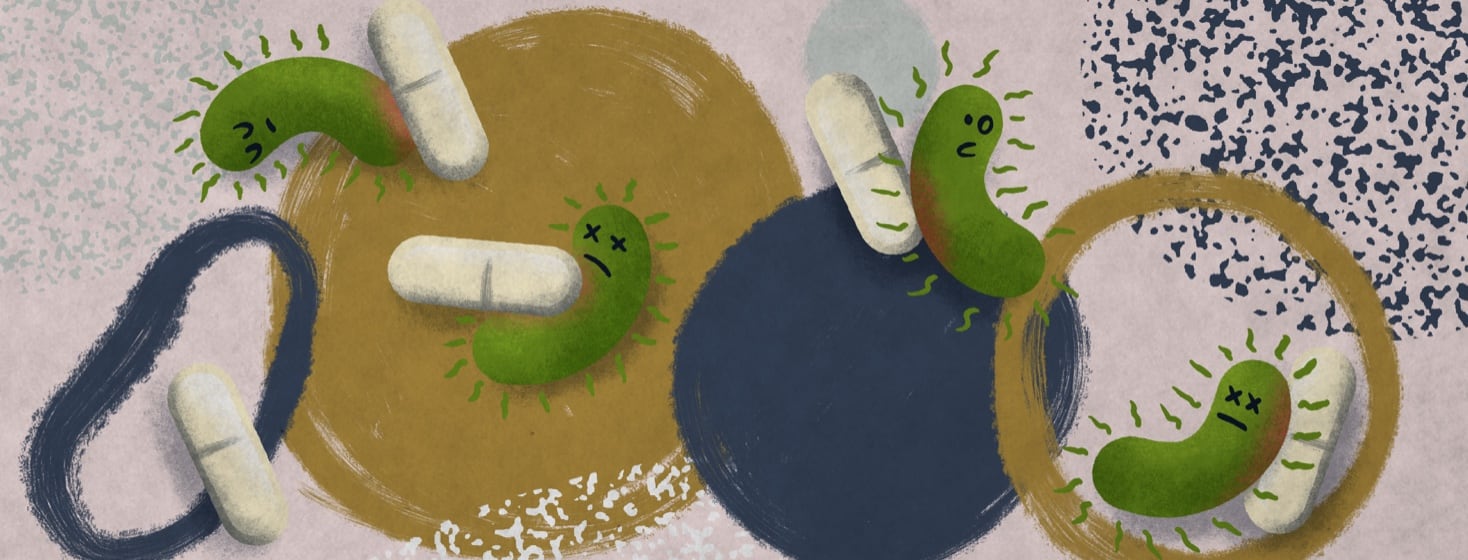Antibiotics & Recurrent C. diff
The first time I was diagnosed with C. diff - I was adamant it couldn’t be true. I’d already experienced several stool cultures on my road to Crohn’s disease diagnosis and treatment and wasn’t unfamiliar with the test itself.
However, I was sure the test was wrong. At the time, I was inpatient in the hospital after being treated for a kidney infection and being diagnosed with mononucleosis.
Symptoms of C. diff
The trademark C. diff infection symptoms were present, but not much different from my daily bowels at the time, and they were missing the thing I’d heard talked about so much - the absolutely foul smell of my poop.
Unfortunately, it didn’t matter. The antibiotics I’d been prescribed for my kidney infection had impacted the bacteria in my gut and had led to my developing C. diff. Dang, right?
Treatment for the infection
The first medication I was prescribed for treatment was Flagyl, which I had a fairly quick reaction to (I was covered in a rash and itching), so the hospitalist switched my treatment to Vancomycin.
If you’ve ever taken Vanco, you know it’s a hassle and a half.
The medication had to be stored in the fridge and taken every 6 hours for 14 days. This meant setting 4 alarms a day, for two weeks, and waking up from my mono-induced sleep to take my Vanco. It was really exhausting and incredibly frustrating, but you gotta do what you gotta do, right?
Struggling with C. diff for 4 weeks without relief
My repeat stool culture, outside of the hospital, showed that the infection did not clear with the first round of Vanco. So, we did another round. Unfortunately, my third stool culture wasn’t any better. After 4 weeks, I still had C. diff.
That's when I met Dificid. Back in 2015, this was a newer medication, and I hadn’t heard of it before. It’s apparently not regularly stocked in pharmacies, but it’s a powerhouse pill just twice a day for 10 days to treat C. diff.
Calls to insurance and pharmacies to get the needed medication
Getting the medication was really difficult - involving several phone calls to insurance and pharmacies, but this was the medication that solved my problem.
Fast forward about a year. I was diagnosed with a UTI and put on 5 days of antibiotics. I knew on day 2 that I’d gotten C. diff again. I had good communication at the time with my GI, and he immediately called in the Dificid prescription. Since that infection, I’ve been placed on antibiotics a few times for non-GI issues, and each time, I’ve also gotten C. diff.
C. diff happened every time I was on an antibiotic
The frustration escalated as I realized the sensitivity of my gut. Anytime I used an antibiotic, I was left with C. diff. That gave me two options going forward:
- Proactively taking C. diff medication alongside any required antibiotic use
- Exploring the option of having a fecal transplant procedure
In the time since that finding, I have needed antibiotics three - two related to my Infertility Treatments and one related to the delivery of my daughter. With the permission of both my physicians, I took Dificid preemptively alongside the required antibiotic use, and successfully (thank goodness!) avoided C. diff each time.
Having to take double the medication is not ideal, but clearly, I prefer it to having the actual C. diff infection.
The importance of advocating for myself
It’s important to note that proactive Dificid use is not super common, and required a lot of conversations with my insurance and my doctors. This was a really critical time for me to advocate for myself, and talk about how the correlation between antibiotics and C. diff for me was incredibly obvious, requiring a strategic approach.
If you’ve experienced antibiotic-related C. diff/recurrent C. diff, I’d love to hear how you manage/treat it below.

Join the conversation